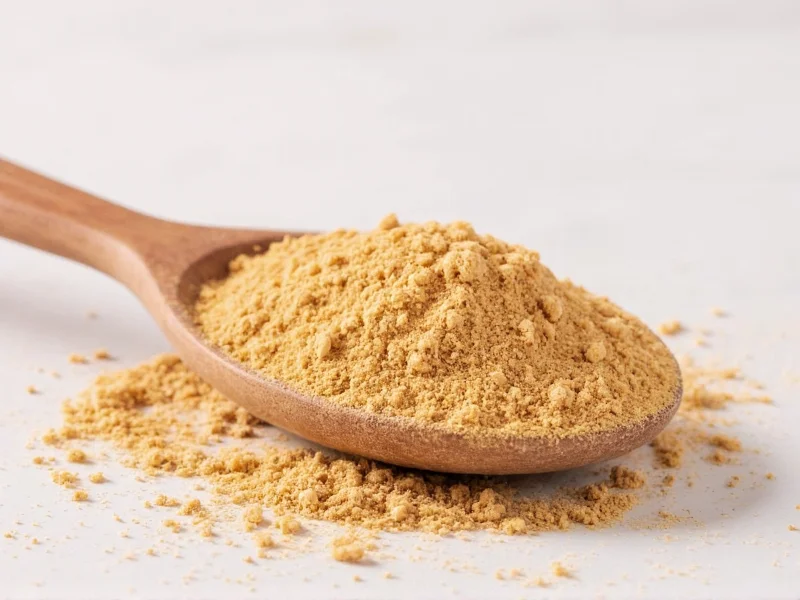When you're in the middle of cooking and realize you've run out of onion powder, knowing reliable substitutes can save your recipe. Onion powder provides concentrated onion flavor without moisture, making it valuable in spice blends, rubs, and dry mixes. Understanding proper substitution ratios and flavor profiles ensures your dishes maintain the intended taste and texture.
Why You Might Need Onion Powder Alternatives
Cooking without onion powder happens for various reasons: pantry shortages, dietary restrictions like onion sensitivity, or simply wanting to experiment with different flavor profiles. Unlike fresh onions, powder delivers consistent flavor without added moisture, which matters in recipes like spice rubs, dry marinades, or baked goods where liquid content affects texture.
Understanding Onion Powder's Role in Cooking
Onion powder contains approximately 5-6 times the flavor concentration of fresh onions due to the dehydration process. It dissolves completely in liquids, distributes evenly in dry mixes, and provides consistent flavor without textural elements. This makes it particularly valuable in commercial food production and specific home cooking applications where uniformity matters.
Top Onion Powder Substitutes Ranked by Effectiveness
| Substitute | Conversion Ratio | Best For | Limitations |
|---|---|---|---|
| Fresh Yellow Onion | 1/4 cup minced = 1 tsp powder | Sauces, stews, soups | Adds moisture; requires sautéing |
| Onion Flakes | 1:1 ratio | Dry rubs, spice blends | Reconstitutes with moisture |
| Shallots | 3:1 ratio (fresh to powder) | Delicate sauces, dressings | Sweeter, more complex flavor |
| Asafoetida (Hing) | Pinch = 1/4 tsp powder | Low-FODMAP diets, onion allergies | Strong initial smell, requires cooking |
| Leek Greens | 1/3 cup minced = 1 tsp powder | Vegetable stocks, soups | Milder flavor profile |
Detailed Substitute Analysis
Fresh Onions: The Most Accessible Alternative
Yellow onions provide the closest flavor match to onion powder. For every teaspoon of powder required, use 1/4 cup finely minced fresh onion. Remember that fresh onions contain about 89% water, so you'll need to adjust cooking times to evaporate excess moisture. Sauté minced onions in a dry pan for 5-7 minutes before adding to recipes that normally use powder. This onion powder to fresh onion conversion works exceptionally well in tomato-based sauces, chili, and meatloaf.
Onion Flakes: The Closest Dry Substitute
Dehydrated onion flakes reconstitute to provide similar flavor to powder but with slightly different texture. Use a 1:1 ratio when substituting flakes for powder. The main difference is that flakes take longer to dissolve completely, making them better suited for slow-cooked dishes rather than instant applications. For onion powder substitute ratios in baking, flakes work better than fresh alternatives since they don't introduce additional moisture that could affect dough consistency.
Shallots: For Refined Flavor Profiles
Shallots offer a more delicate, slightly sweeter alternative to standard onion powder. Use three parts fresh shallot to replace one part onion powder. Finely mince and sauté until translucent before incorporating into recipes. This substitute shines in vinaigrettes, creamy sauces, and delicate fish preparations where standard onion flavor might overpower. Professional chefs often prefer shallots as an onion powder alternative for sensitive stomachs since they're generally better tolerated.
Asafoetida (Hing): The Specialized Solution
For those with onion allergies or following a low-FODMAP diet, asafoetida provides an unexpected but effective solution. This resin from the ferula plant delivers sulfurous compounds similar to onions when cooked. Use just a pinch (about 1/16 teaspoon) of asafoetida to replace 1/4 teaspoon of onion powder. Always add it to hot oil at the beginning of cooking to mellow its strong initial aroma. This non-allium alternative to onion powder works particularly well in Indian cuisine and bean dishes where onion flavor traditionally enhances digestibility.
Special Dietary Considerations
For individuals following a low-FODMAP diet, standard onion alternatives won't work. The Monash University certified approach recommends using the green tops of scallions (up to 65g per serving) or infused onion oil. To make onion-infused oil, sauté chopped onion in olive oil for 10 minutes, then strain out the solids. This captures the flavor compounds while removing the problematic FODMAPs. This technique provides an effective low-FODMAP alternative to onion powder for sensitive digestive systems.
Practical Substitution Guidelines
When replacing onion powder in recipes, consider these professional chef tips:
- For dry rubs: Use onion flakes or double the amount of garlic powder for similar umami
- In baked goods: Reduce liquid by 1 tablespoon for every 1/4 cup fresh onion added
- For instant flavor: Create a quick paste with fresh onion and a small amount of water
- In spice blends: Increase other aromatics like garlic powder or celery seed by 25%
When Substitutions Won't Work
Some applications truly require onion powder's unique properties. Commercial spice blends like Old Bay or Montreal steak seasoning rely on precise powder-to-spice ratios that change significantly with fresh alternatives. Similarly, dehydrated soup mixes and dry gravy packets depend on the exact moisture content of powder. In these cases, consider making a small batch of homemade onion powder by dehydrating minced onions at 140°F for 6-8 hours, then grinding to a fine powder.
Creating Your Own Onion Powder Substitute Blend
For the most versatile replacement, create a custom blend using:
- 2 parts dried onion flakes
- 1 part garlic powder
- 1/2 part celery seed (ground)
- 1/4 part citric acid (for brightness)
This homemade onion powder replacement mimics both the flavor complexity and functional properties of commercial onion powder. Store in an airtight container for up to six months. The citric acid helps replicate the natural acidity of fresh onions that gets concentrated during dehydration.











 浙公网安备
33010002000092号
浙公网安备
33010002000092号 浙B2-20120091-4
浙B2-20120091-4